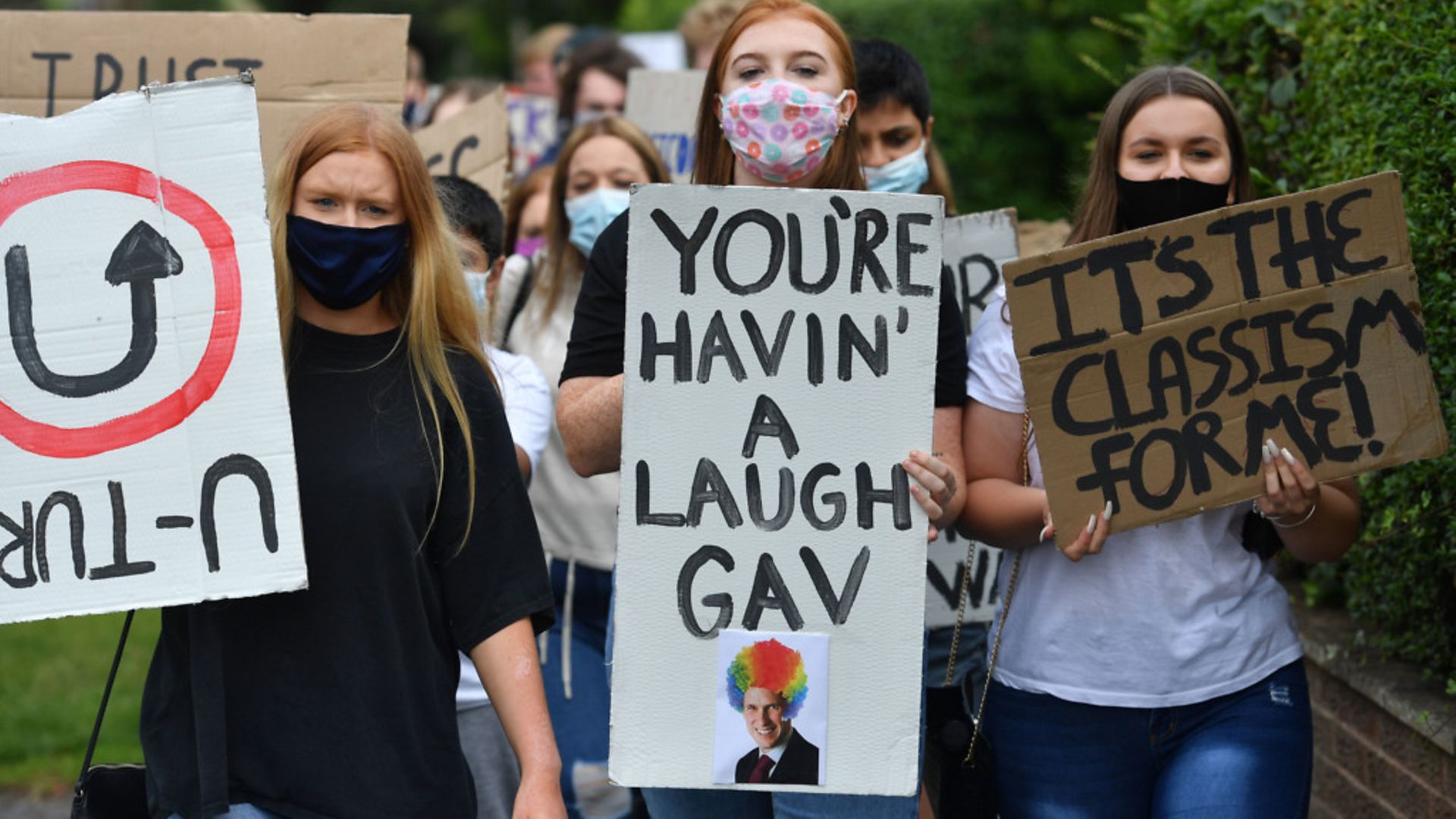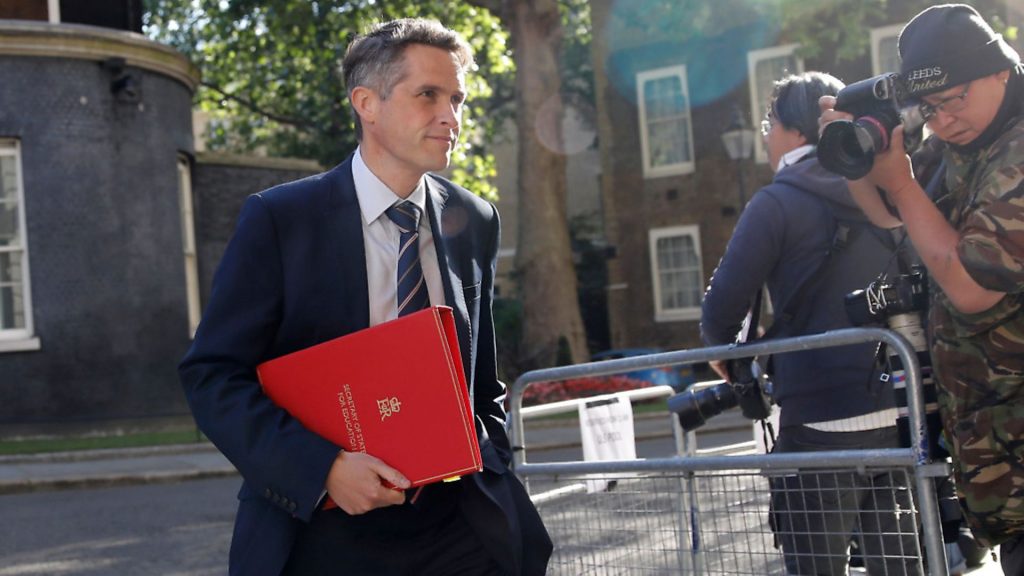
Former education secretary DAVID BLUNKETT says the government has failed to appreciate the scale of the damage the pandemic is inflicting on children’s prospects.
The British, or more accurately the English, handling of the Covid pandemic has thrown up two markedly different levels of success and competence.
I’m not talking here about the fiascos relating to the purchase of protective equipment and the allegations of cronyism and nepotism that have accompanied them. Or even the calamity of Test and Trace which operated at massive expense to the public, for little apparent gain, and to the great benefit of some very large corporate entities with friends in high places.
No, I’m talking about what has happened to the education of young people on one hand, and the rollout of the vaccines on the other.
The latter has, so far, appeared successful – reflecting two completely opposite value sets evident in Britain today. The first is the National Health Service and a commitment to service, equality and decentralised delivery. The second reflects the operation of the large financial services sector and commodity markets both in the UK and internationally and their propensity for rapid decision-making and risk-taking (usually with other people’s money, and scant respect for getting value for it).
The vaccine success has, despite the Brexit politicking, nothing to do with Britain being outside the European Union. The UK regulator, the MHRA, was, under European rules, perfectly free to authorise the use of the Pfizer BioNtech vaccine ahead of any decisions taken by the European Medicines Agency – and it did, and certainly demonstrated a more surefooted and less bureaucratic approach.
I mention all this to contrast the way in which the UK has handled this health issue, with the disastrous approach to the future well-being and opportunity of our young people.
Leave aside the competence (or otherwise) of the secretary of state for education, Gavin Williamson, and concentrate instead on a mindset from government as a whole: one made up of inexperienced, universally right wing and, in the main, extremely well-off individuals.
Jobs were not handed out by prime minister Boris Johnson on merit but on which side individuals backed in the Brexit referendum and its aftermath. From the top down there seems to be a total lack of understanding of the critical nature of education in liberating the talent of individuals and the future of the British economy.
In 1997, when I had the privilege of being appointed education and employment secretary by Tony Blair, the mantra was “education, education, education”. The prime minister meant it, the government got it, and I had the support – and gradually the resources – to start a transformation in the quality and breadth of education.
Now we face the enormous betrayal of millions of young people who, whilst less likely to put others at risk of Covid, are, through no fault of their own, doubly disadvantaged.
Disadvantaged because of the enormous amount of schooling lost since March 2020, and because the plans for catch up – including in further education – are tragically lacking. Doubly disadvantaged because so many have no access to equipment needed to take part in remote learning.
In the first national lockdown between mid-March and June, there were no plans for a safe and effective return to school; no plans for the provision of devices or connectivity for children at home and no consideration for the impact these measures would have on children expecting to take examinations within weeks of the lockdown.

The use of an algorithm – which had built into it a severe version of what is called ‘norm referencing’: ranking the young people based on schools’ past results rather than their immediate performance – led to what can only be described as a student rebellion.
One young woman I know received for her maths A Level: a C in the teacher assessment; from the algorithm, U (failure); and then, with the opportunity of sitting an exam in October, a grade A!
As I write, the government still haven’t confirmed any form of assessment and moderation for those who would have had examinations in the summer of 2021. And though I welcome a rare non-croneyistic appointment of Sir Kevan Collins to a role overseeing ‘educational recovery,’ as so often with this government, they are months late, and his task will be all the harder because of all the damage done.
No one could blame any government for being unprepared back in March 2020 as the virus struck. It was all hands to the pump, to try and work out what to do and how best to do it. What is unforgivable, however, is the lack of lessons learned, and therefore the failure to plan ahead. We are into the third lockdown and, looking at the lack of clear strategy for schools, it is as though the first two never happened. The government has learned nothing, never a good sign when it comes to education.
The disruption of the ‘mini lockdown’ in November was followed by clear commitments from government that schools would open in January. I was pleased that, at last, education was being given the priority it deserved. This was short-lived. Having been promised by Boris Johnson on Sunday January 3 that schools would open on Monday 4, they were closed again by Tuesday 5.
All this after leadership teams and teachers had spent much of the Christmas and New Year break preparing for routine testing of staff and pupils on top of preparing for a smooth return to face-to-face teaching.
To make matters worse, the amount of equipment and connectivity that had been put in place for home learning was woefully short both of what was originally promised in the summer, and what was required in order to provide anything approaching a realistic learning experience.
In January, the highly respected Sutton Trust produced research on the damage done to the most disadvantaged pupils in the most disadvantaged communities -reinforced two weeks ago by the Institute for Fiscal Studies with an estimate that pupils will have lost two-thirds of a year’s teaching if schools do not return to face-to-face operation before the end of the Easter break. The damage to social cohesion, and the impact on already rampant inequality, is enormous.
Pearson, the education resource company, has estimated that more than 100,000 young people aged 16-17, in addition to the existing cohorts, will be seeking to catch-up on English and Maths in order to access either A-levels or – the new shiny kid on the block – T-levels for vocational education.
In other words, those who have lost out already are likely to lose out again. This sad state of affairs is reinforced by the fact that the excellent initiative run by the National Tutoring Programme has been accessed by just three in 10 pupils, with schools expected to find 25% of the cost. This programme, specifically geared to catch-up will, without immediate action, end with a whole cohort, once again, being ‘left behind’. So much for “levelling up,” one of the many slogans that remain just that, a slogan.
More than 20% of better-off parents already provide tutors for their children, meaning the gap between the haves and have-nots might accelerate to a point where it will be impossible to close it in time to avoid real damage to the life chances of so many young people.
The challenge now is to work across the sector, with trade unions and professional bodies, to return to face-to-face teaching – recruiting, where possible, volunteers with relevant experience, expanding online tutoring and devolving additional resources to schools. Testing and, where appropriate, vaccination, will play a vital part in reassuring both staff and parents. The message is clearly understood by those familiar with, and who have benefited most from, education: getting children back into school, and placing absolute priority on learning, changes life chances.
We, as a community, owe it to those already struggling with the daunting prospect of overcoming generational disadvantage to give them the after-school help, weekend catch-up and summer schools; to turn fine words about catch-up and recovery into reality. Anything less will merely confirm that this is a government of and for those who already have, and a government which fails to understand the role of a good education for all in a country’s success.
David Blunkett was education secretary from 1997 to 2001; he also served as home secretary and work and pensions secretary
What do you think? Have your say on this and more by emailing letters@theneweuropean.co.uk










